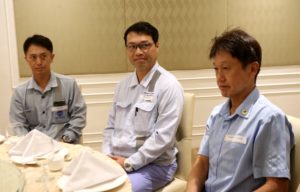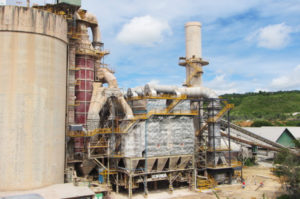More investments seen amid growing infra sector
BRIGHT PROSPECTS FOR CEMENT INDUSTRY
Despite the challenges brought about by the rising inflation in the past few months and impact of the new taxes on fuel of the new tax reform law, an official of a cement company has remained optimistic of the prospects of the cement industry in the country especially in Cebu.
Takashi Miyashita, Taiheiyo Cement Philippines INc. (TCPI) senior vice president, said that despite the challenges, the country’s growing infrastructure sector coupled with the robust economic development would be the key stimulus for Taiheiyo Cement to continue to invest in the industry.
Miyashita also said in a statement that the firm would pour in more investments for 2019 as its manifestation of its deep confidence in the Philippine economy.
“The cement market in the country has been steadily increasing in the past several years particularly in the infrastructure sector,” said Miyashita in an email sent to Cebu Daily News.
Miyashita said that the growth had been brought about by the government’s Build, Build, Build program projects that would be expected to boost the cement industry in the country.

Takashi Miyashita (left photo, center), Taiheiyo Cement Philippines senior vice president, together with other firm’s officials discuss the company’s plans and investments such as the new baghouse filter project (above) during a press briefing in Cebu City. CDN PHOTO/JUNJIE MENDOZA)
He also cited the challenges such as the inflation that had reached a 9-year high of 6.7 percent in October and the increased tax on fuel brought by the Tax Reform for Acceleration and Inclusion (TRAIN) Law heavily affected the production cost of cement.
“As one of the industries that are fuel-intensive, cement manufacturing plants are certainly adversely affected by the increased tax on fuels,” said Miyashita.
The company was forced to implement cost-cutting measures and invest in technology that would increase production efficiency.
Despite the challenges, Miyashita said that TCPI would continue to compete in the Philippine cement industry to fulfill their mission of ‘building better lives and better communities for the Filipinos.’
TCPI produces 2.4 million tons of cement, at least five percent of the country’s demand for cement.
Investment
TCPI said in a statement that it had invested on a new baghouse filter to replace its electrostatic precipitator (EP) at their San Fernando town, south Cebu, plant claiming that this would reduce the carbon emissions of the plant to almost zero.
“It has been a year since we operated with the baghouse, and we are pleased to announce now that our emissions have run only far below 10 milligrams per normal cubic meter,” said Chiyuki Sugawara, TCPI senior vice president for operations and plant manager.
He said that the 10 milligrams per normal cubic meter was a far cry from the 121 milligrams per normal cubic meter the plant used to emit before the installation of the new baghouse.
TCPI installed the baghouse during an annual shutdown in June last year and commissioned it as the plant resumed operations a month after, according to Dwight P. Avila, TCPI environment and safety department section head.
“Further reducing emissions at the plant is our commitment to operate with deep regard to our environment and the health of our employees and our immediate communities,” said Kazuhiko Ichizawa, TCPI president and CEO who was then SVP operations who pursued the project.
Disclaimer: The comments uploaded on this site do not necessarily represent or reflect the views of management and owner of Cebudailynews. We reserve the right to exclude comments that we deem to be inconsistent with our editorial standards.

